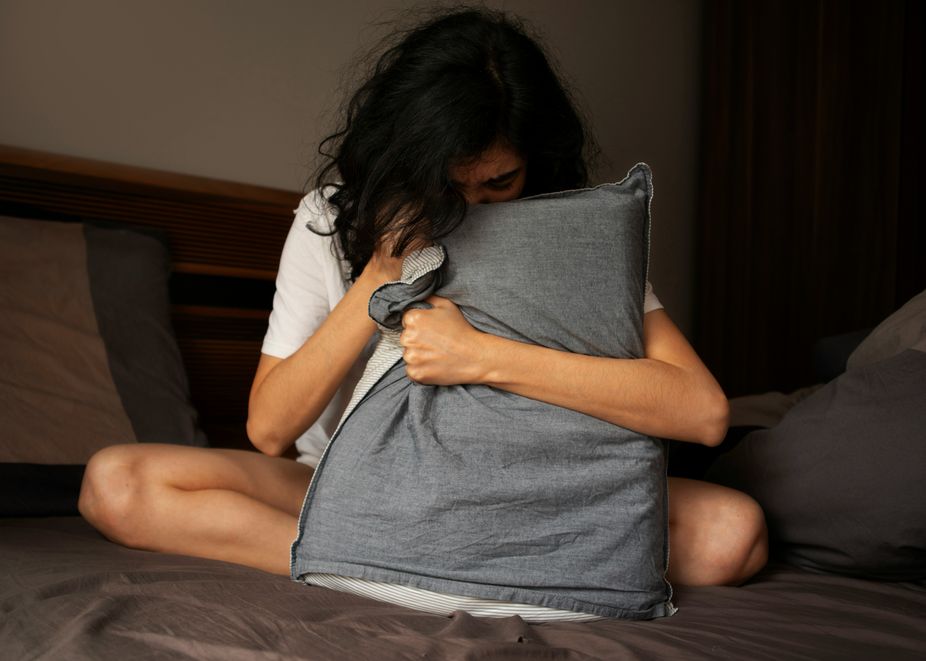
Do Sleep Meds Break Your Intermittent Fast?
Hello lovely ladies, 👋Today, we're diving into a topic many of us wonder about: can sleep medications break your fast? This is crucial for those of u...

Intermittent fasting (IF) is a popular health strategy, known for its benefits like boosting metabolism, improving energy, and aiding in weight loss. But what happens when fasting starts to interfere with your sleep? Many women experience insomnia while fasting, and it can make it difficult to maintain the routine.
Thankfully, there are ways to combat this issue and still enjoy the benefits of fasting.

Fasting disrupts sleep for several reasons, including:
 While Fasting A woman preparing to go to bed, creating a calming nighttime routine to improve sleep quality during intermittent fasting.](/_astro/woman-is-preparing-to-sleep.DJhS_Cmq_ms1kG.jpg)
Here are a few strategies to help you fight insomnia while still enjoying the benefits of intermittent fasting:
Align your eating schedule with your body’s natural rhythms. Circadian fasting—where you finish eating earlier in the evening—helps regulate your body’s natural melatonin production and reduces sleep disturbances. Try to finish your last meal 2-3 hours before bed to give your body time to digest before winding down.
Your food choices during your last meal of the day can make a big difference in how well you sleep. Opt for foods rich in magnesium, tryptophan, and healthy carbs like leafy greens, nuts, turkey, and bananas. These promote relaxation and can improve sleep quality.
Dehydration can disturb sleep, but overhydrating right before bed can result in multiple trips to the bathroom. Drink plenty of water throughout the day, but taper off closer to bedtime.
Fasting can spike cortisol, which makes it harder to fall asleep. Incorporating relaxation techniques like meditation, deep breathing, or gentle yoga before bed can help lower your cortisol levels and get your body ready for rest.
If insomnia persists, consider adjusting your fasting window. Starting and ending your eating window earlier—such as fasting from 9 a.m. to 5 p.m.—may help your body settle into a rhythm that allows for restful sleep.
If your body is telling you that fasting is keeping you awake, it may help to break your fast with a small, nutrient-dense snack before bed, such as a handful of almonds or a small piece of fruit. This can stabilize your blood sugar and help you avoid hunger-induced wakefulness without derailing your fasting plan.
Having a steady, calming bedtime routine signals your body that it’s time to wind down. Dim the lights, avoid screens (blue light can interfere with melatonin production), and keep your bedroom cool and comfortable for optimal sleep conditions.
For women, sleep quality is heavily influenced by hormones like estrogen and progesterone. Intermittent fasting can temporarily impact these hormones, so maintaining a balanced diet that includes foods rich in B vitamins, magnesium, and healthy fats can help. Foods like salmon, avocados, and chia seeds are particularly beneficial for hormone regulation and can support restful sleep.
A: Intermittent fasting can trigger insomnia due to increased cortisol levels (stress hormone), low blood sugar at night, or hunger pangs that disrupt sleep. Additionally, fasting too close to bedtime can alter your body’s natural circadian rhythm, leading to difficulty falling or staying asleep.
A: Try Circadian fasting, where you eat during daylight hours and finish meals 2-3 hours before bedtime. Choose sleep-friendly foods like turkey, almonds, or bananas for your last meal, and incorporate relaxation techniques such as meditation or deep breathing before bed to reduce cortisol levels.
A: Yes, staying hydrated is essential, but avoid drinking large amounts of water right before bed to prevent frequent bathroom trips. Herbal teas like chamomile can help promote relaxation without disrupting sleep.
A: Yes, adjusting your fasting window to an earlier time, such as from 9 a.m. to 5 p.m., can give your body enough time to digest food and prepare for sleep, reducing the risk of insomnia.
A: If hunger is disrupting your sleep, try a small, nutrient-dense snack like a handful of almonds or fruit before bed. This can help stabilize your blood sugar without significantly disrupting your fasting goals.
The information provided in this article is intended for educational purposes and should not be considered medical advice. Please consult a healthcare professional before making changes to your diet or fasting routine, especially if you experience persistent insomnia or health issues. Fasting and its effects on sleep can vary by individual, so it’s important to tailor your approach based on your personal health needs.
Intermittent fasting is a powerful tool for overall health, but it’s important not to sacrifice sleep in the process. By adjusting your fasting schedule, eating sleep-promoting foods, and practicing relaxation techniques, you can enjoy the benefits of fasting while still getting a good night’s rest. Listen to your body, make tweaks where needed, and you’ll find a balance that works best for your health and wellness.

Hello lovely ladies, 👋Today, we're diving into a topic many of us wonder about: can sleep medications break your fast? This is crucial for those of u...

Ladies, I know many of you are all about that intermittent fasting life for weight loss, metabolic health, and overall wellness. But if you're one of ...

Kate here, coming at you with a topic that's been causing quite the buzz - do statins break intermittent fasting? With so many of us fabulous fasters ...

Girl, I know you've heard all the hype about intermittent fasting lately. Basically, it's this eating pattern where you cycle between periods of fasti...

Intermittent fasting (IF) has surged in popularity within health and wellness communities, celebrated for its potential to promote weight loss, improv...